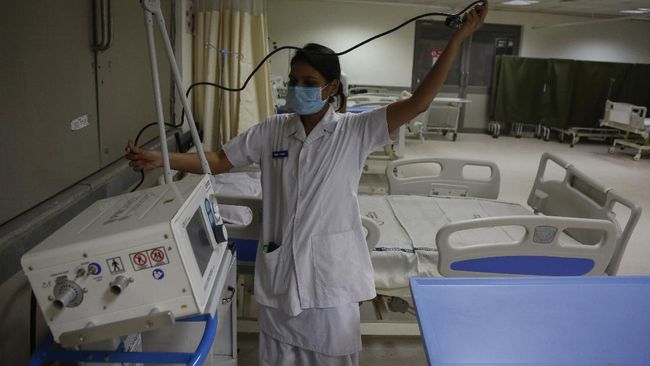Jakarta, CNBC Indonesia – India signals the emergence of antibiotic-resistant “super germ infections”. This discovery was first reported by doctors at Kasturba Hospital in the western Indian state of Maharastra.
Super germs, also known as superbugs, are a term for bacteria that constantly change over time and become resistant to drugs that are supposed to defeat them and cure any infections that arise.
Due to this immunity, the bacteria caused 1.27 million deaths worldwide in 2019, according to medical journals Hand. Antibiotics, which are considered the first line of defense against serious infections, are also ineffective in most of these cases.
ANNOUNCEMENT
Scroll to resume content
To collect BBCIndia is one of the countries most affected by this infection. Superbug is thought to have caused Neonatal infections that cause the death of nearly 60,000 newborns every year.
The Indian government reports that the situation is currently deteriorating.
A series of tests conducted at Katurba hospital to find the most effective antibiotics against five of the most common bacterial pathogens found that frequently used drugs no longer work.
Pathogens include E. coli (Eschericia coli); usually found in the intestines of humans and animals after ingesting contaminated food; Klebsiella pneumoniae, which can infect the lungs and cause pneumonia and sores on the skin and lining of the brain that cause meningitis and Staphylococcus aureus, a food-borne bacterium that can be transmitted via droplets or aerosols in the air.
Doctors found that some important antibiotics were less than 15% effective in treating infections caused by these pathogens. And most worrying is the emergence of a multidrug-resistant pathogen, Acinetobacter baumannii, which attacks the lungs of patients in intensive care units.
“Because nearly all of our patients cannot afford higher antibiotics, they are at a real risk of death when they develop ventilator-associated pneumonia in the ICU,” said Dr. SP Kalantri, medical superintendent of the hospital.
A recent report from the Indian Council of Medical Research (ICMR) states that resistance to a powerful group of antibiotics called carbapenems increased by 10% in just one year.
“The reason this condition is troubling is because it is a great drug for the treatment of sepsis (a life-threatening condition) and is sometimes used as a first-line treatment in hospitals for very ill ICU patients,” he said. stated Dr. Kamini Walia, a scientist. . at the Indian Council for Medical Research (ICMR) and lead author of the study.
Next article
Oops! Dozens of children in India contract the tomato flu, what is it?
(hsy / hsy)

